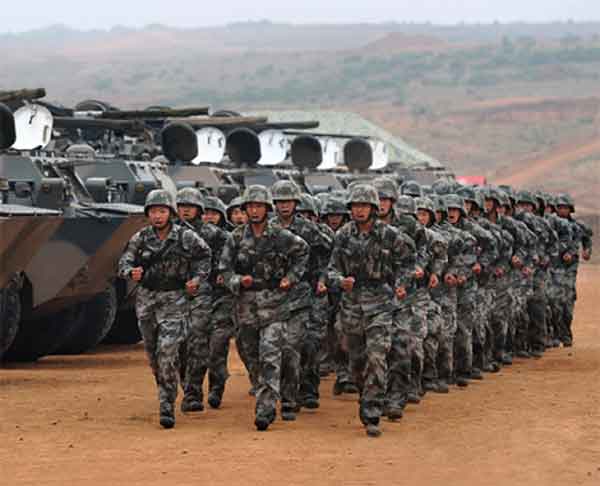Arnold J. Toynbee, a doyen of historian, in his multi volume magnum opus ‘Studies in World History’ had predicted rise of China and India and the challenge it will pose to the West dominated world order.
Toynbee wrote that when the process of industrialization going on in India and China reaches its conclusion, the huge populations of these countries will begin to weigh in the politico-military balance of the world. Such invigorated Giants will then seek their just share in resources of the world, currently skewed in favour of the West.
Interestingly, Toynbee’s predictions, made in 1960s seem to be coming true in the 21st century as evidenced by the rapid economic rise of both the countries. Yet the interesting fact is that while there is huge literature on the rise of China, peaceful or otherwise, there is very little discussion on rise of India! It is indeed interesting that the rest of the world or West in particular does not see rise of India in the same threatening light as China! The only country that seems to be obsessing over rise of India is of course wannabe Pakistan and to some extent, China.
Lazy analysts of current affairs masquerading as strategic analysts, attribute this anxiety about rise of China to the aggressive Chinese leadership and its Communist party. This is analogous to putting all the blame for World War II on Hitler and Nazi party. The German example is of relevance as most thoughtful historians see that as the last instance of rise of new power that threatened the then existing power balance in the world and led to a worldwide conflict.
Germany’s aggressive policies were not the creation of Hitler or the Nazi party but it was the economic distress, cussedness of Allies in 1919, existing German nationalism and aspiration that gave rise to Nazi party and Hitler. The 20th century conflicts can also be seen as a competition between TWO rising powers, Germany and the USA. It is the US that won the contest ultimately as it aligned with the declining powers (UK and France) and was seen as a benign power compared with Germany! Bertrand Russell is on record of having said that while world domination by any single power was bad, he would rather have America dominate world rather than the chaos of multiple power centres.
This analysis of the 20th century partially explains why the world does not show much anxiety about rise of India while obsessing about rise of China. India’s democratic set up, clear goal of economic wellbeing of people and history of having no territorial ambitions to dominate, seem to be the reasons for desire to ‘accommodate’ rise of India.
The issue of potential rise of China has been engaging attention in the US for over 50 years. This author studied the President Kennedy archives on this subject. It is accepted that the Kennedy presidency saw engagement with ‘best and the brightest’ of American intellectuals. After much debate the Kennedy administration came to a conclusion that the US must follow a twin approach to China. In nutshell it envisaged economic engagement and military containment! Except for the aberration of the Nixon-Regan era, the US seems to be following this policy faithfully. The understanding is that since the economies of US and China are so entwined that there is very little economic incentive for military conflict, which in any case faces superior American power.
The first and the foremost factor giving rise to anxiety about rise of China is its tendency to follow a revanchist approach towards neighbours. Its claim to whole of Arunachal Pradesh as ‘Southern Tibet’ claims on South China sea islands and waters and islands close to Japan, are all manifestation of it. The notion of revanchism itself is a product of Chinese demography.
China has implemented a strict one child policy in past. One consequence of that is According to a report by the National Population and Family Planning Commission, there will be 30 million more men than women in 2020. Second consequence is that China will be facing 1+2+2 problem. A lone male child will be responsible to look after two parents and two grandparents. Chinese demographics is also unique in that large part of its population will be ‘single’ children, China will be truly a nation populated by ‘little Emperors’.
What impact this will have on national behaviour is a question mark that has no historical precedence. The unusual aggression displayed by the Chinese internet users in social media is one indicator. While the Communist Party rule is dictatorial to an extent, yet it has to adjust itself to the social pressures from ground upwards. Strict control over media and ban on all organisations other than the Communist party, has kept a lid over the social discontent. But random acts of violence like knife attacks by lone wolf attackers have been occurring quite frequently.
As Chinese system is without checks and balances and has no independent judiciary, the social conditions do resemble a ‘pressure cooker’ situation. When all these factors combine to produce a threat to the Communist party and its monopoly of power, external aggression could be a tempting diversion for the Chinese leadership.





